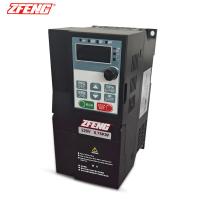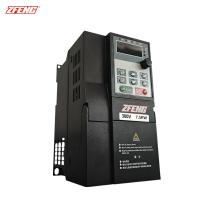| Sign In | Join Free | My himfr.com |
|
| Sign In | Join Free | My himfr.com |
|
| Ask Lasest Price | |
| Brand Name : | ZFeng |
| Model Number : | Zfeng900 Series |
| Certification : | CE、CB、CCC、ISO9001、ISO14001、ISO45001、EN61439、EN61000 |
| Payment Terms : | L/C,D/A,D/P,T/T,Western Union,MoneyGram |
| Supply Ability : | 500-10000 per Month |
| Delivery Time : | 3 Days |
It can accurately control the motor speed and flexibly adjust the power output according to actual needs, avoiding energy waste. Compared with traditional equipment, using a frequency converter can significantly reduce the starting current of the motor, reduce the impact on the power grid, and make the power grid operation more stable.
Moreover, frequency converters have powerful protection functions,
which can effectively extend the service life of motors, reduce
equipment failure rates, minimize maintenance costs and downtime
losses. This not only improves production efficiency, but also
indirectly contributes to environmental protection by reducing
waste generated from equipment replacement and maintenance.
By using a frequency converter, the energy-saving effect is
immediate and the return on investment is high. Choosing a
frequency converter means choosing an efficient, energy-saving, and
environmentally friendly industrial production method. Don't
hesitate anymore, join the ranks of green and energy-saving
immediately, and let the frequency converter bring tangible
economic and environmental benefits to your enterprise!
1, Determine application requirements
Control purpose: Clarify the purpose of using a frequency
converter, such as constant voltage control, constant current
control, etc., which will directly affect the selection and
parameter settings of the frequency converter.
Speed range and accuracy: Determine the speed range and accuracy
requirements of the frequency converter according to production
needs. If high-precision speed control is required, a vector
control type frequency converter can be chosen.
2, Match motor parameters
Power matching: The rated power of the frequency converter should
match the rated power of the motor, usually selecting a frequency
converter that is equal to or slightly greater than the motor power
to ensure sufficient driving capacity.
Voltage and current matching: The rated voltage and current of the
frequency converter should meet the requirements of the motor,
avoiding overload or underload operation.
Pole number consideration: Consider the number of poles of the
motor, as this will affect the synchronous speed of the motor. The
frequency converter needs to be appropriately set according to the
number of motor poles to achieve the expected speed regulation
effect.

|




